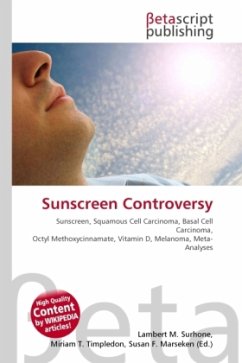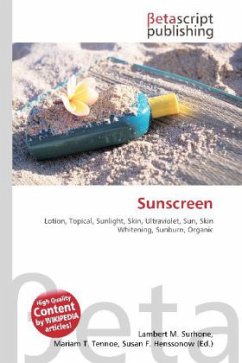High Quality Content by WIKIPEDIA articles! Sunscreen protects against two common forms of skin cancer, squamous cell carcinoma (SCC) and basal cell carcinoma (BCC), and several sunscreen ingredients protect against tumor development in photocarcinogenicity tests in mice. However, there is some evidence, largely arising from correlational studies and in vitro experiments, that particular sunscreen ingredients (such as oxybenzone, benzophenone, octocrylene, or octyl methoxycinnamate) may be linked to increased risks of malignant melanoma, a rarer but more deadly form of skin cancer. It has also been linked to Vitamin D deficiency. The broad areas of concern are: potentially carcinogenic properties of some sunscreen ingredients Vitamin D deficiency caused by reduced exposure to ultraviolet light incomplete protection against the full ultraviolet spectrum combined with increased time spent in the sun
Bitte wählen Sie Ihr Anliegen aus.
Rechnungen
Retourenschein anfordern
Bestellstatus
Storno








